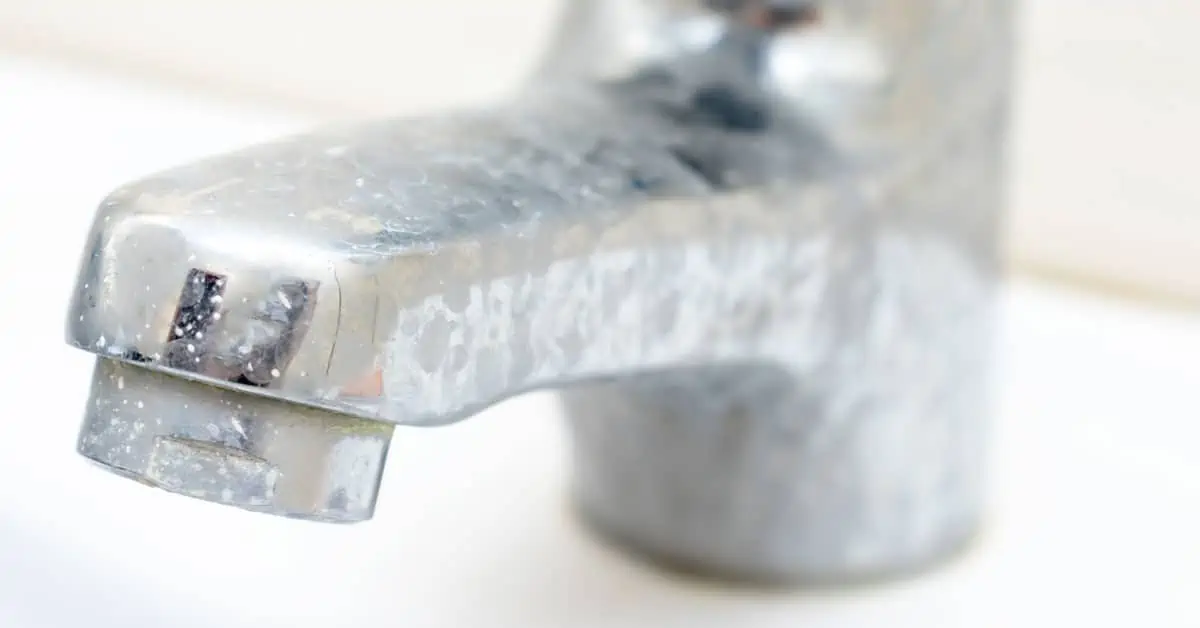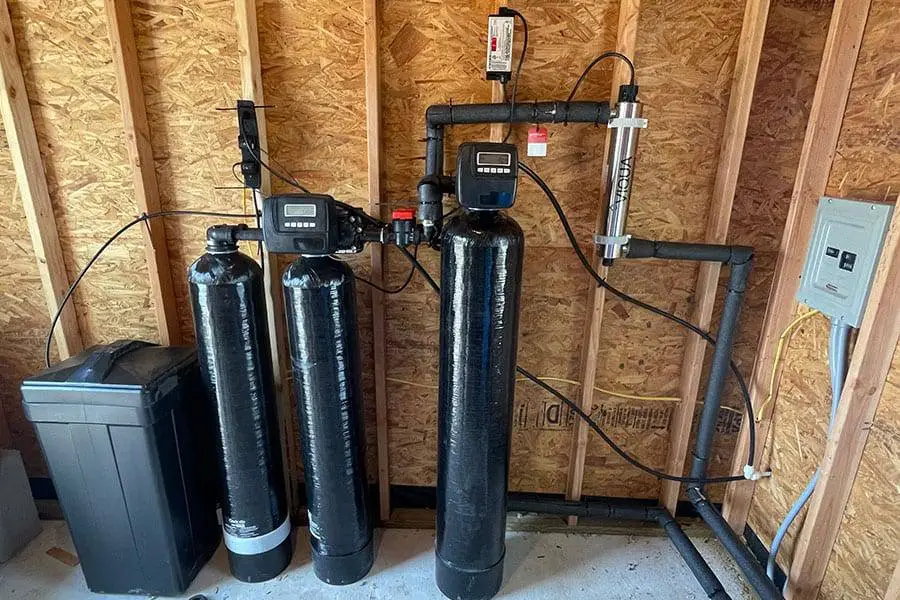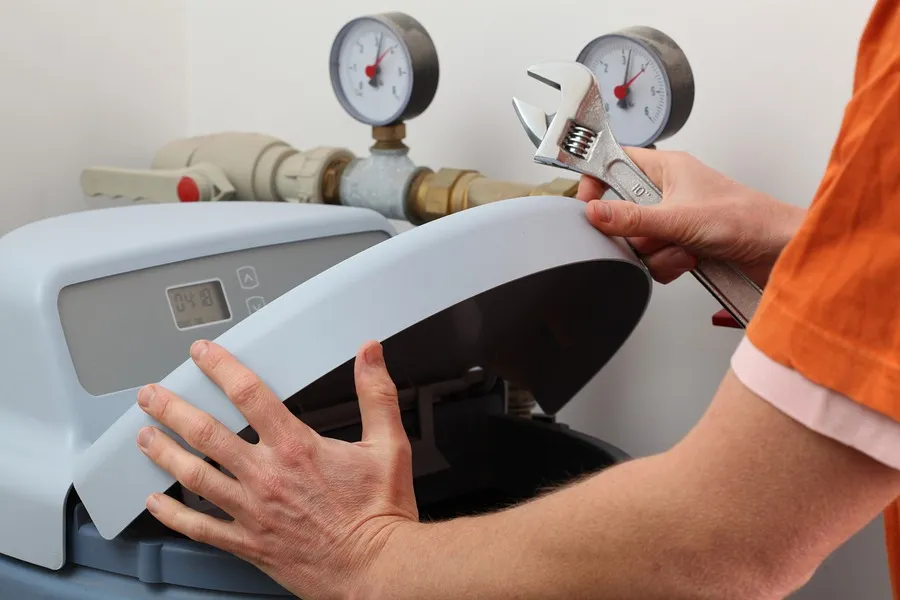Should I Get a Water Softener System?
Published on July 9, 2024 | 5 Minute read

Melanie
Ortiz Reyes
Content Specialist
Water quality plays a crucial role in everyday life, affecting everything from household chores to personal health. If you've noticed issues like limescale buildup on faucets, dry skin and hair after showers, or laundry that feels stiff and rough, hard water may be the cause. A water softener system offers a solution by reducing the mineral content in your water. Before deciding, it's important to weigh the advantages and disadvantages, as well as consider scientific findings on the effects of hard water consumption.

What Exactly is Hard Water?
Hard water contains elevated levels of minerals, particularly calcium and magnesium ions, which naturally dissolve as water passes through limestone and chalk deposits. While not harmful to health, hard water can create several practical and cosmetic challenges:
- Limescale Buildup: Mineral deposits accumulate in plumbing fixtures, appliances, and water-using devices, reducing efficiency and longevity.
- Soap Residue: Hard water reacts with soap to form a sticky residue, making it difficult to achieve lather and clean effectively.
- Skin and Hair Issues: Residual minerals can leave skin feeling dry and irritated and cause hair to appear dull and brittle. Read more on the effects of hard water on hair and skin here.
- Laundry Concerns: Washing clothes in hard water may result in faded colors, stiffness, and reduced fabric lifespan due to mineral buildup.

Pros of Installing a Water Softener System
1. Reduction of Limescale and Mineral Buildup
A primary benefit of a water softener system is the prevention of limescale buildup in plumbing and appliances. By eliminating minerals that cause scaling, you can extend the lifespan and improve the efficiency of your water-related equipment. My Buddy the Plumber says a water softener system can double the life of your appliances!
2. Enhanced Cleaning Efficiency
Soft water improves the effectiveness of soaps and detergents. Without mineral interference, soap lathers more readily and rinses away completely, resulting in cleaner dishes, softer laundry, and a more refreshing bathing experience. This can also lead to savings on cleaning products and reduced water consumption during rinsing. Water e Store claims you can save up to $400 a year on soaps with a water softener.
3. Improved Skin and Hair Health
Soft water is gentler on skin and hair compared to hard water. By reducing mineral residues, soft water helps maintain skin's natural moisture balance, resulting in softer skin and healthier-looking hair.
4. Potential Energy Savings
Studies suggest that water heaters using soft water may operate more efficiently. By eliminating mineral deposits, heaters can heat water faster and potentially reduce energy consumption, leading to lower utility bills over time. A win-win!
5. Environmental Benefits
Using a water softener system may contribute to environmental sustainability by extending the lifespan of appliances and reducing the need for harsh cleaning chemicals. It can also result in less water and energy consumption during daily activities such as bathing, laundry, and dishwashing.

Cons of Installing a Water Softener System
1. Increased Sodium Content
Traditional water softeners replace calcium and magnesium ions with sodium ions. While effective in reducing water hardness, this process increases sodium levels in softened water. Individuals on sodium-restricted diets or concerned about sodium intake should consider this aspect.
2. Maintenance Requirements
Water softeners require regular maintenance to ensure optimal performance. This includes replenishing salt or potassium pellets, periodic cleaning of the brine tank, and potential servicing of the unit. Failure to maintain the system can lead to inefficiency and potential breakdowns.
3. Initial Cost and Installation
The initial cost of purchasing and installing a water softener system can be substantial. Factors influencing cost include the type and size of the system, complexity of installation, and any necessary plumbing modifications. However, long-term benefits such as reduced maintenance and improved appliance longevity may justify the initial investment.

Studies on the Effects of Drinking Hard Water
Scientific research provides insights into the potential health effects of consuming hard water:
- Cardiovascular Health: Some studies suggest a correlation between higher calcium and magnesium intake from hard water and reduced risk of cardiovascular disease. These minerals may play a role in maintaining heart health and regulating blood pressure.
- Bone Health: Calcium intake from drinking water can contribute to overall calcium intake and support bone health. However, excessive calcium intake from water alone is uncommon and typically not a health concern for most individuals.
- Gastrointestinal Health: Limited evidence exists linking hard water consumption to gastrointestinal issues. However, high mineral content in water may affect taste and influence water consumption habits.
Determining whether to install a water softener system depends on your specific needs, preferences, and considerations. If you experience issues related to hard water, such as limescale buildup, skin irritation, or laundry problems, a water softener can offer practical solutions and improve overall water quality. However, it's important to carefully evaluate the pros and cons, including maintenance.
Consulting with a water quality expert or conducting a water analysis can provide valuable information about your water hardness levels and help you make an informed decision. By understanding the effects of hard water on your daily life and considering the long-term benefits of water softening, you can enhance efficiency, comfort, and overall well-being in your home.